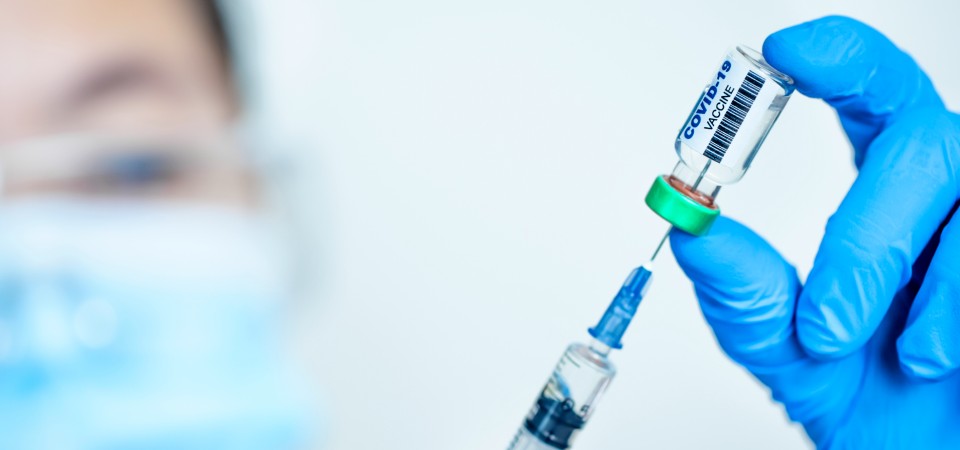And more than half of Serbian people believed that natural immunity from COVID was better than being vaccinated.
These figures come from a new report which examines the effects of populism on misinformation and other aspects of crisis communication around the coronavirus pandemic.
Written by members of the PANCOPOP project team, led by Professor Sabina Mihelj, and drawing on ongoing research on pandemic communication in populist environments, the report outlines the factors that contribute to susceptibility to health misinformation.
One of the key findings was the increased level of acceptance of false and misleading statements about COVID by members of the public holding populist beliefs or voting for populist politicians in four countries, namely the United States (US), Brazil (BR), Poland (PL) and Serbia (RS).
Prof Mihelj, of the School of Social Sciences and Humanities, said: “Populism can also be an ideology which generally makes people more gullible to falsehoods and rumours, independently from how populist leaders behave.
“Polish and Serbian populist leaders did not actively promote COVID-19 misinformation and, at least at the start of the pandemic, supported preventive measures recommended by public health authorities and experts.
“Nevertheless, populist voters in Poland and Serbia were more likely to believe in more false statements, albeit to a lesser degree than Brazilian and American populist voters.”
A survey of 5,000 people from those countries found that more than 40% of the people polled believed COVID-19 vaccines are experimental, and health risks associated with them are not known. And, that over a third of the official numbers of deaths from COVID-19 have been grossly exaggerated.
Table 1: Susceptibility to misinformation and rumours about COVID-19 (% of those who agreed)
|
|
BR |
PL |
RS |
US |
ALL |
|
COVID-19 was purposefully created in a lab |
34 |
32 |
46 |
38 |
37 |
|
The official numbers of deaths from COVID-19 have been grossly exaggerated |
36 |
32 |
37 |
34 |
35 |
|
Face masks can make people ill |
19 |
37 |
27 |
28 |
27 |
|
The U.S. military is behind the creation of the virus |
10 |
9 |
21 |
16 |
14 |
|
Covid-19 vaccines are experimental, and their health risks are not properly known |
40 |
45 |
51 |
40 |
43 |
|
Natural immunity from Covid-19 is better than vaccines |
27 |
45 |
54 |
38 |
39 |
|
COVID-19 vaccines can change people's DNA |
14 |
21 |
12 |
21 |
17 |
|
COVID-19 vaccines have been developed using human embryos |
10 |
15 |
8 |
20 |
14 |
|
COVID-19 vaccines contain microchips |
10 |
10 |
8 |
19 |
12 |
The report made series of recommendations directed towards three main groups involved in health crisis communication: public health authorities and government officials, media regulators and policymakers, and news organizations and journalists. It also included a series of best practice examples draw from the four countries.
For public health authorities and government officials, the emphasis lies on anticipating the politicization of health threats and preventative measures, ensuring transparency and autonomy of specialized health agencies, avoiding top-down styles of communication and fostering multipartisan dialogue in decision-making.
Additionally, the development of integrated, multi-stakeholder strategies to combat health misinformation was advised, involving stakeholders from media organizations, regulators and digital platforms to influencers and local communities.
Prof Mihelj said: “Media regulators and policymakers are urged to bolster freedom of information protections, challenge political interference, and support media literacy initiatives. The report suggested they should also proactively support the media in health emergencies, for instance by prioritizing complaints about health topics.
“News organisations and journalists are encouraged to openly challenge any crisis measures that may interfere with public access to information, improve internal governance to guard against political influence, be mindful of the fact that misinformation can originate from political elites, medical professionals, and celebrities, and engage in regular fact-checking of health information from all sources.”
To read the full report visit: www.pancopop.net/wp-content/uploads/2024/05/PANCOPOP-Report-in-English.pdf
ENDS
